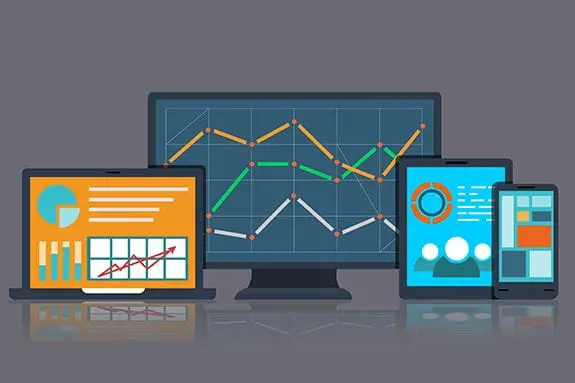

The outdated ways the financials industry still thinks about leads are holding it back from creating the right tools for the right prospects and ushering in a new era of online marketing, argues Ran Cohen, founder and CEO of FX Leads and Traders Education.
Let me be clear this article isn’t about lead generation, at least not in the conventional sense. It’s not about some vague cloud of would-be conversions that your business has to track down and exhaust. Lately the word “lead” has been overused into meaninglessness, which is why I’m having to start this article with what it’s not about. Basically, if you paid a dollar for it, then it’s probably not the kind of lead I’m talking about. Maybe what marketeers refer to as a “qualified lead” is what I’m referring to here. But then again, what makes a lead qualified for Business A may not hold true for Business B. The issue seems to be that there’s no “basis grade” for a lead’s quality as there is in commodities trading. If I tried to sell you a phone directory dressed up as 100,000 quality leads, you’d be justified in having me thrown out of your office, right? Well, each day businesses waste time and money collecting and pursuing leads that are every bit as useless to them as that phone directory.
So, what makes a quality lead?Well, broadly speaking, in our industry a lead of quality can be described as a prospective client with a genuine interest in trading independently on his or her own account. You can, however, find leads that conform precisely to the above definition and still that transaction between client and broker never takes place. It’s these leads that I’m interested in. Why do they fail to convert? Maybe all she really wanted was to read the ebook you were pushing and her interest ended there. Perhaps your heavy handed salesperson who called him 27 seconds after he pressed “sign me up”, scared him off. Who knows, there are many things your business can get wrong after having gained a lead’s attention. My point is that having a perfectly willing prospect is not enough, you must also have ways of quickly understanding what he or she wants from you.Know your traffic sourcesPaying attention to the origin uderstanding your leads, especially if you’re tracking how they relate to your revenues. There’s a quantifiable difference between a lead from Source A, which came from a major financial portal, and a lead from Source B, which came from Bob’s Bitcoin Blog. Today, you have the tools at your disposal to not only prioritise your business’s energies on the highly valued traffic from places like Source A, but to also to direct Bob’s subscribers from Source B to something that may also hold their interest. Use these tools. I find it amazing that online businesses still operate without studying the sources of their traffic and tailoring different conversion paths for each.Intention is everythingWithout wanting to get all new-agey on you, the intention of your incoming leads is going to determine the strategies that you use to convert them. Why did they click? What do they want? If your ebook landing page really is blowing up right now, this should tell you that you currently have the attention of lots of content-driven prospects. What else do you have to show them? What does your content marketing look like? How annoying are your emails? Is your education centre just another box on your CMO’s to-do list? Or are you offering things that people genuinely want to read? Back to that ebook, it’s good, right? I mean you didn’t cut corners, did you?Connection before conversionContrary to popular belief, your primo, top-drawer, all-star, V.I.P leads, are always the ones that you’ve already somehow connected with. By connection I mean that each one has already received something from you. Not in a vague branding sense, not because your banner caught their attention, or they liked your YouTube video. I mean that each lead was looking for something very specific when they stumbled upon your business. Maybe it was that cute app you made with the push notification price alerts, or the experience of talking to a really helpful customer service agent, or the definition of a trading term that someone was searching for, or that article with the catchy title about what Hillary winning will mean for the Middle East. Rather than viewing leads as these slippery, indeterminate things that you have to gather by hook or by crook and convince into giving you their money, how about defining leads as only those potential customers who have already had some kind of meaningful interaction with your business?Final thoughtsMarketing is all about creating the right tools for the right leads. And yet, if you think about it, the marketing strategies of most online brokers haven’t really changed much since the early 2000s. I think this is partly because of the outdated ways we still think about leads. A lot has changed, technologically speaking, in the last 15 years. Today a fairly resourceful marketing manager can do the work of entire marketing departments from decades gone by. Today, not only are you more efficient, but your audience is also way more savvy, better connected and has pretty much seen it all. What has really changed though, is that there are now more of us than ever competing for a resource that’s diminishing by the day. That resource is attention and the only way anyone ever grabbed mine has involved using their imagination. That’s the way we usher in a new era of online marketing, not through repetition of the same, but by updating our definitions. In this way you can gear up your business to focus on creating positive interactions, rather than just collecting lists of names and numbers.